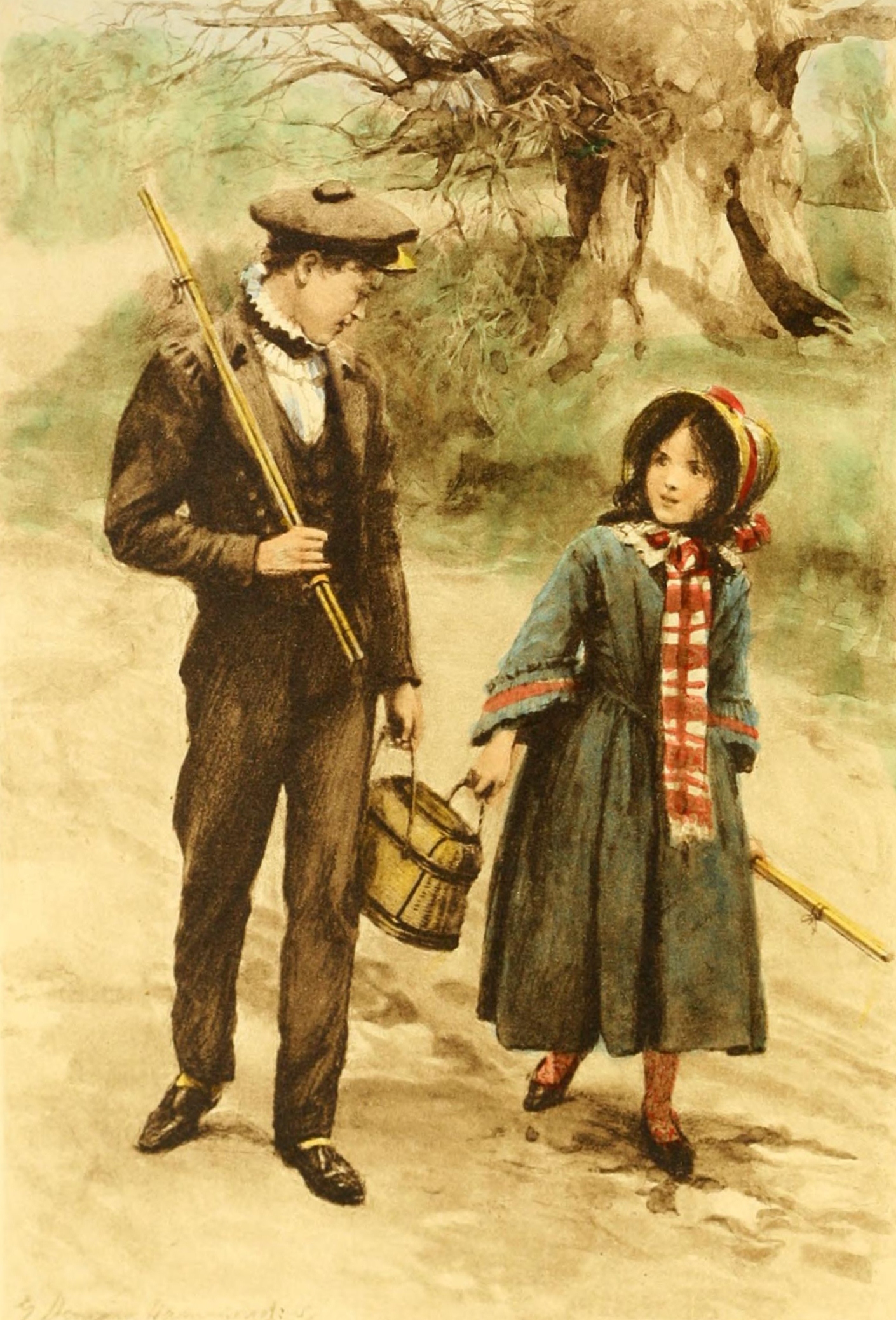 |
Little do they know the inner tumult Maggie experiences each time she falls out of grace with her brother. They don't see how desperately she wants to be good so she can please him, or how a single harsh word from Tom can make her feel like the the sun has gone out in her world.
The book describes the intensity with which she feels all these things, but Mrs. Tulliver and the disapproving aunts write off Maggie's despairs as trifles. And on the surface, they are trifling: a cold glance from Tom, a forgotten token, a spoiled afternoon plan. They're almost nothing compared to the troubles of the grown-ups.
But just because her troubles are smaller doesn't mean they're any less painful. Maggie is smaller, and all her woes are proportionate to herself. It only takes a little water to fill a short glass, but nonetheless it is still full.
In self-reflection, I was a bit rattled when I recognized Mrs. Tulliver in my own life. When children come to me with their troubles, I'm guilty of belittling their experiences: "That's not so bad compared to ______," I do want to help them get a right perspective of the world, but I also realize that I need to acknowledge those "trifles" as seriously as they do.
|

No comments:
Post a Comment